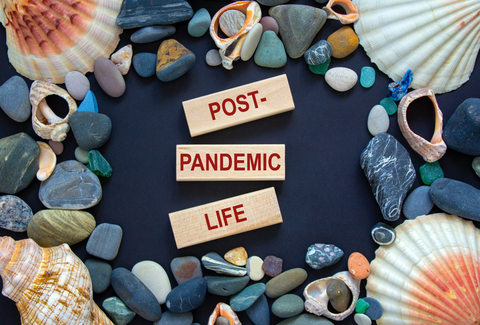For over a year now, we have been inundated with zoom appointments, virtual holiday dinners, Facetime dates, and online school. Seemingly overnight, nearly every aspect of our lives was transformed. After months of quarantine, Covid fatigue led to feelings of frustration, as people have been desperate to travel, go out to restaurants and bars, spend time with loved ones, and gather with friends. However, as more people become vaccinated and restrictions lift, some of us may be feeling differently than we thought we would about returning to “normal life” post-pandemic. Pressure to go on dates, make plans with friends, find a job, or confront situations that prompt urges for problematic behavior will be increased post-pandemic. You may feel anxious about socializing with friends, even if you all are vaccinated. Maybe you are uncomfortable with the uncertainty of what’s to come. If you are feeling worried about life returning to “normal,” you are not alone. While we all adjust and work on coping with this transition, here are some DBT skills I believe will help.
- Check the facts. Ask yourself what your interpretations and assumptions are and if you are assuming a threat (i.e., “I’m going to be so awkward,” “I’m the only one worried about going back to work in person”). Over the past few months, I have seen various social media posts joking about how we have all forgotten how to socialize during quarantine. While in-person interactions were definitely limited, I try to remind myself that most of us have spent decades acquiring and practicing social skills, so it is unlikely that they have completely disappeared. If you’ve been working remotely and are now worried about how to approach that first conversation back at the office, you are likely not the only one experiencing this fear. It can be helpful to address the elephant in the room and embrace the awkwardness.
- Set healthy and flexible boundaries. Take it slow. There is no need for the transition to happen all at once. Each person will have their own idea of what feels safe to them. We do not have to see everybody we missed in one weekend, and we don’t have to accept every social invitation. It is not necessary to jump in with both feet- readjustment can be more of a slow, gradual progression.
- Practice self-care. It’s important to take care of yourself to adjust well to changes and manage daily stressors. Incorporate time for self-care every day. Some helpful self-care practices include meditation, journaling, going for a walk, playing with a pet, reading a book, or taking a bath.
Cope ahead. For those with increased emotional distress related to things returning to “normal,” I would encourage you to practice coping ahead. Coping ahead is a DBT skill that can be used in figuring out which situations are likely to cause someone trouble and then not only planning ahead for how to cope with expected difficulties, but also imagining being in the situation and coping effectively. Examples of post-pandemic situations for which this skill could be useful include easier access to drugs or alcohol and more frequent visits by family members. By vividly imagining the anticipated painful emotional states before they occur and rehearsing what coping skills you could utilize, you can work towards building a life worth living and engaging in fully.

